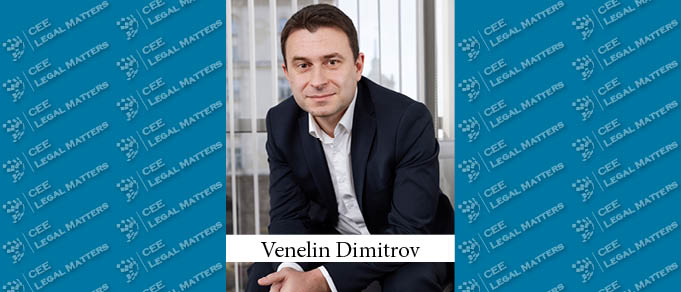Cautious optimism threads across Bulgarian markets – despite political instability and rising concerns fueled by the concurrent global crises – according to Komarevski Dimitrov & Partners Partner Venelin Dimitrov.
“Bulgaria has had four elections in less than two years, so you could say that our political climate is not a very stable one,” Dimitrov begins. The newly elected parliament had its first three sessions following the elections of October 2, and it is already facing challenges. “The citizens voted in such a way that no party gained a majority – a fairly wide coalition of likely more than three parties will be needed in order to govern in a stable fashion.”
Dimitrov goes on to explain that the political parties that made it past the finish line are very different in their philosophies and political approaches. This means that they will need “to find a way to work together and coalesce around important issues, in order to help people make it through these difficult times,” he explains. Still, Dimitrov shares that he is “cautiously optimistic about the times to come,” hoping that the new powers that be will help the country move forward in a stable way.
“The immediate task is to combat the incoming recession, fueled by rising inflation and interest rates, and further accelerated by the increase in energy prices, sanctions, and countersanctions both resulting from the war in Ukraine,” Dimitrov says, adding that the situation is particularly dire when taking into account that “Bulgaria just started to recover from the pandemic years.” He reports that the overall legislative efforts have been stalling in the country, as a direct consequence of political insecurity and instability. “The road ahead will have to include a comprehensive legislative agenda – transposing the EU whistleblowing directive, implementing ESG-related changes, and improving the overall state of compliance, to name but a few areas of interest,” he says.
However, where there are challenges, Dimitrov also feels there are opportunities. “We have seen a strong uptick of work related to the relocation of businesses and workers from Russia, Ukraine, and Belarus to Bulgaria, primarily in the area of IT,” he says. “In times like these, this is a major positive signal because it implies that the already booming domestic IT market will likely develop further,” he explains.
Finally, Dimitrov reports that investor interest in Bulgaria is “resilient in the face of ongoing struggles. There has been a bit of a dip following the post-COVID-19 surge, but M&A levels are still good in Bulgaria. Consolidation on some markets continues as expected.” Dimitrov opines that investors are currently likely to employ a “wait and watch” approach, but that “they still wish to continue doing business, which is a positive sign. There are swaths of market optimism – especially in the renewable energy and construction sectors – and I am confident that this will spell good things for the economy,” he says in conclusion.






















